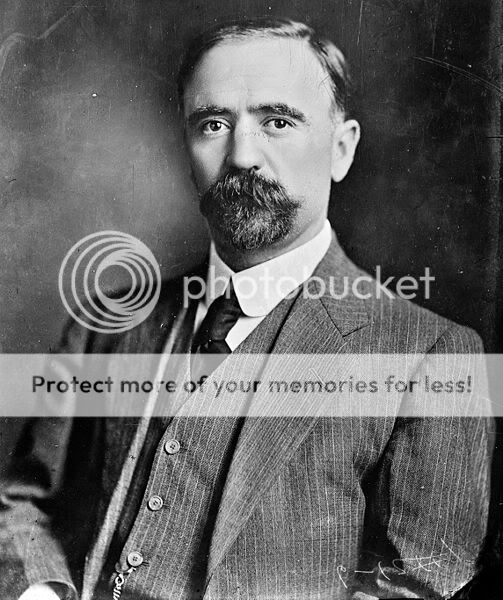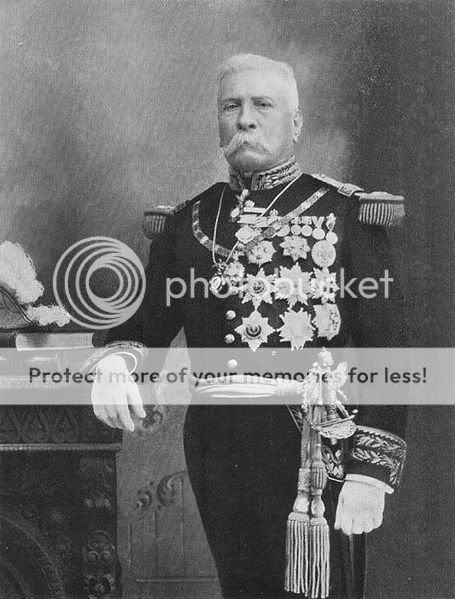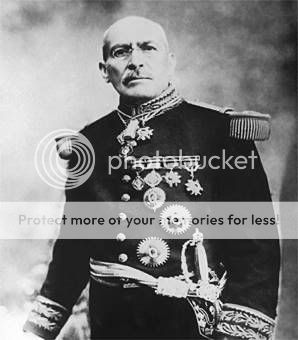1866 First national convention of the Grand Army of the Republic. The GAR would be represented by local chapters throughout the US, including Wyoming, leaving memorials in at least Casper and Basin, Wyoming.
1869 First issue of the Wyoming Tribune published in Cheyenne.
1886 Thomas Moonlight appointed Territorial Governor of Wyoming.

1903 Tom Horn hanged for the murder of Willie Nickell. He was actually hung with the rope he made, like the popular proverb, as he braided the rope while serving time waiting for his execution.
1920 An emergency landing strip was bladed near Laramie. This was not, however, Brees Field. Attribution: Wyoming State Historical Society.
1945 Mindful of an industry that had become significant in the state even well before World War One, Gov. Lester Hunt urged western governors to cooperate in selling the West to tourists who would follow the end of World War Two. Attribution. Wyoming History Calendar.
Elsewhere:
1868 Ft. Omaha founded in Nebraska.
1871 John and David McDougall become the first farmers in Alberta.
1910 Francico Madero declares a revolution in Mexico. Madero's revolution was a success in that Diaz fled the country in 1911. He died in France in 1915, but Madero died well before him, as he was assassinated by those loyal to Gen. Huerta, who had no sympathy with Madero's views.

Diaz's long life was one that featured many interesting turns. He joined the Mexican army in the first instance in order to fight against the United States in the Mexican War. He lead guerrillas against Santa Ana upon his return to Mexico. He fought the French with Juarez but was an opponent, sometimes a revolutionary, against Juarez thereafter. He came to rule Mexico in 1877 by popular election, and ironically stepped down after one term having run on that platform. He ran again in 1884 and remained in power until the revolution. While he ultimately was toppled in a revolution, his authoritarian rule of Mexico was the first real period of peace in Mexico since the revolution against Spain, and the country generally prospered. Had he stepped down, as he had indicated he was willing to do, he would be well remembered today.

Heurta would die in El Paso Texas, in exile, in 1916, where he was under house arrest after having been detected negotiating with the Germans for arms in violation of the Neutrality Act.

Of note here, the involvement in the US in the Mexican Revolution proved to be almost inevitable. The border region was chosen by participants in both sides as a place of refuge, to include both the humble and the conspiratory. Madero, Villa, and Huerta all chose the US as a place of refuge, and a place to base themselves in the hope to return to Mexico and achieve power. Tensions on the US border started with the revolution being declared in 1910, and as early as the first day of the revolution Mexican authorities were assuring the US not to have worries. Tensions would last long after World War One, and the cross border action that started before the war would continue on briefly after the war.
The Wyoming National Guard, like that of every other state, would see border service in this period, first being mustered to serve on the border in 1915. National Guard service involved nearly constant active duty from March 1915 through World War One.
1917 The Battle of Cambrai opens, and Villa back on the front page. November 20, 1917.
As Wyomingites were headed towards Thanksgiving this week, they learned that the giant surprise British attack at Cabrai had been launched. The battle would feature British tanks in a major way.
And Pancho Villa was back in the headlines for the success of his old occupation, as he battled Carranza near the US border.
1919 November 20, 1919. Rumors
Carlisle was being reported as sassy and successful on this day in 1919. In fact, his attempt at robbing a Union Pacific passenger train near Medicine Bow failed due to his own scruples. . . he couldn't rob soldiers, and he'd been wounded disarming a passenger.
Rumors were circulating that he'd sent a bragging telegram. I'm not that familiar with the details of this story, but I don't believe that he did.
He had been lost track of, that's true.
But I don't believe that he'd made it to Casper.
The press was giving him greater abilities than he had.
1920 Nobel Peace Prize awarded to Woodrow Wilson.
This was Thanksgiving Day in 1941. . . unless it wasn't.
The situation was pretty confused, it's easier to read about it here:
Thanksgiving in World War II
American Thanksgiving is a fairly late Thanksgiving to start with. As has been noted here on earlier posts, this holiday is much less unique to the US than Americans think it is. Most nations do it earlier, however.
It has moved around in the US case. The Library of Congress's "Wise Guy" posts, summarize it as follows:
Is it time to buy the turkey? In 1939, it would have been difficult to plan your Thanksgiving dinner for 12.
Today, Thanksgiving is celebrated on the fourth Thursday of November. But that was not always the case. When Abraham Lincoln was president in 1863, he proclaimed the last Thursday of November to be our national Thanksgiving Day. In 1865, Thanksgiving was celebrated the first Thursday of November, because of a proclamation by President Andrew Johnson, and, in 1869, President Ulysses S. Grant chose the third Thursday for Thanksgiving Day. In all other years, until 1939, Thanksgiving was celebrated as Lincoln had designated, the last Thursday in November.
Then, in 1939, responding to pressure from the National Retail Dry Goods Association to extend the Christmas shopping season, President Franklin D. Roosevelt moved the holiday back a week, to the next-to-last Thursday of the month. The association had made a similar request in 1933, but at that time, Roosevelt thought the change might cause too much confusion. As it turns out, waiting to make the change in 1939 didn't avoid any confusion.
At the time, the president's 1939 proclamation only directly applied to the District of Columbia and federal employees. While governors usually followed the president's lead with state proclamations for the same day, on this year, 23 of the 48 states observed Thanksgiving Day on November 23, 23 states celebrated on November 30, and Texas and Colorado declared both Thursdays to be holidays. Football coaches scrambled to reschedule games set for November 30, families didn't know when to have their holiday meals, calendars were inaccurate in half of the country, and people weren't sure when to start their Christmas shopping.
After two years of confusion and complaint, President Roosevelt signed legislation establishing Thanksgiving Day as the fourth Thursday in November. Roosevelt, recognizing the problems caused by his 1939 decree, had announced a plan to return to the traditional Thanksgiving date in 1942. But Congress introduced the legislation to ensure that future presidential proclamations could not affect the scheduling of the holiday. Their plan to designate the fourth Thursday of the month allowed Thanksgiving Day to fall on the last Thursday in five out of seven years.
This was the last year of the confusion, and the split dates. Sarah Sundin, on her blog, noted:
So what about Wyoming in 1941? Did we do Democratic Thanksgiving or Republican Thanksgiving this year?
Today.
Indeed, it's a little surprising, at least in a modern context, but Wyoming recognized today as the Thanksgiving Holiday for 1941. While Wyoming had a Republican legislature, and a Republican Governor, Nels H. Smith, serving his single term, it followed the Federal lead.
Lots of Americans were having their second military Thanksgiving.
Holidays in large wartime militaries, and while the US was not fully at war yet, this really was a wartime military, are a different deal by definition. The service does observe holidays and makes a pretty good effort at making them festive, but with lots of people away from home without wanting to be, they're going to be a bit odd. Some troops, additionally, are going to be on duty, training, or deployed in far off locations.
As noted above, we've included a wartime photo of a cook in what is undoubtedly a staged photo cooking two turkeys in a M1937 field range, a gasoline powered stove.
They continued to be used through the Vietnam War.
Holiday or not, talks resumed in final earnest between the United States and Japan, with Japanese representatives presenting this proposal to the United States
1. Both the Governments of Japan and the United States undertake not to make any armed advancement into any of the regions in the South?eastern Asia and the Southern Pacific area excepting the part of French Indo-China where the Japanese troops are stationed at present.
2. The Japanese Government undertakes to withdraw its troops now stationed in French Indo-China upon either the restoration of peace between Japan and China or the establishment of an equitable peace in the Pacific area.
In the meantime the Government of Japan declares that it is prepared to remove its troops now stationed in the southern part of French Indo-China to the northern part of the said territory upon the conclusion of the present arrangement which shall later be embodied in the final agreement.
3. The Government of Japan and the United States shall co-operate with a view to securing the acquisition of those goods and commodities which the two countries need in Netherlands East Indies.
4. The Governments of Japan and the United States mutually undertake to restore their commercial relations to those prevailing prior to the freezing of the assets.
The Government of the United States shall supply Japan a required quantity of oil.
5. The Government of the United States undertakes to refrain from such measures and actions as will be prejudicial to the endeavors for the restoration of general peace between Japan and China.
The Germans captured Rostov on the Don in Russia and slowed the British advance in North Africa.































.jpg)


















